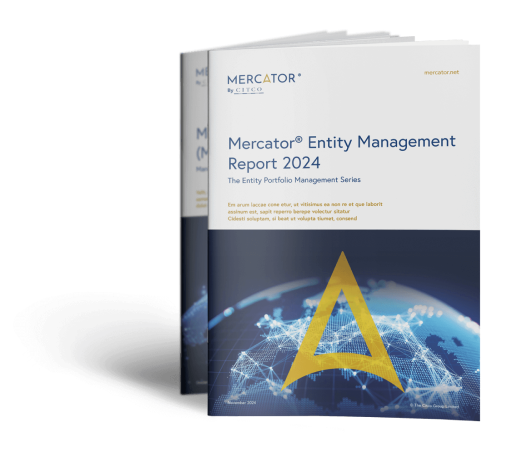The information contained in this document is marketing material and for informational purposes only. The information contained in this document is presented without any warranty or representation as to its accuracy or completeness and all implied representations or warranties of any kind are hereby disclaimed. Recipients of this document, whether clients or otherwise, should not act or refrain from acting on the basis of any information included in this document without seeking appropriate professional advice. The provision of the information contained in this document does not establish any express or implied duty or obligation between Citco and any recipient and neither Citco nor any of its shareholders, members, directors, principals or personnel shall be responsible or liable for results arising from the use or reliance of the information contained in this document including, without limitation, any loss (whether direct, indirect, in contract, tort or otherwise) arising from any decision made or action taken by any party in reliance upon the information contained in this document. © The Citco Group Limited, December 2024.
Cost and Time of Entity Management in Brazil and Mexico
Latin America (LATAM) offers a rich market full of opportunities for multinationals who are looking to expand their operations. However, historically high levels of bureaucracy and varying levels of political and environmental instability within the region, means it remains one of the most complex regions to operate in when it comes to Entity Portfolio Management (EPM).
In our upcoming special report – part of Mercator’s EPM report series – we look at how LATAM performs as whole in comparison to other regions worldwide, as well as ranking LATAM jurisdictions by both the cost and time it takes to complete corporate activities. Alongside this, we examine some of the nuances and complexities of navigating entity management in key jurisdictions.
Below we give an exclusive preview of some the key findings from the report relating to Brazil and Mexico – the regions’ two largest economies.
Activity level
Mexico and Brazil top the rankings in terms of the most overall tasks; however the data shows they are below the LATAM average when it comes to activity per entity.
This is because companies operating in Mexico and Brazil will include as many decisions into one meeting as possible, which reduces the number of documents to be signed and visits to the notary/authority. In addition, in both jurisdictions, there are practically no director’s decisions to file due to more active involvement of shareholders and shareholders’ representatives in the management and decision making.
Time
Despite being hot spots for activity, Mexico and Brazil rank as some of the slowest jurisdictions to complete activities: Brazil is 675% slower than the fastest LATAM jurisdiction overall whilst Mexico is 925% slower, the third slowest overall.
In Brazil, this is due to the complexity of the process which involves substantial document collection, execution and translation. In Mexico, the delays are caused by the registration process itself, taking anywhere from six weeks to several months.
Registrations must either be submitted physically, or documents are manually, and in great detail, reviewed by the relevant authorities. Due to local authorities’ workload and backlogs, it can take significant time for documents to be processed. In addition, local authorities do not readily disclose the name of an individual who can be contacted about the status of an application, meaning it is near impossible for companies to chase the authorities for an update.
Slightly lesser, but more consistent, delays are caused by the requirement of wet ink signatures and availability of original documents over digital copies.
Cost
Mexico and Brazil rank as two of the costliest jurisdictions within LATAM – Mexico being 106% more expensive than the cheapest jurisdiction, and Brazil being 160% more expensive.
Both jurisdictions have many different states, each with different procedures and operated by different authorities, meaning multiple filings are required for just one change. In Brazil, there are additional pre-steps to complete before even making a filing. For example, every foreign director or shareholder must be registered with a local tax number.
The majority of multinationals will incur translation costs as both Mexico and Brazil apply requirements for foreign documents. Translated documents must also be apostilled and sworn translated to certify the original source of the document.
In Mexico, most corporate governance tasks are accompanied by strict notarization requirements, meaning additional arrangements must be made locally and additional expenses incurred for notarial work. These requirements necessitate extensive knowledge of the legal framework and experience carrying out the practical aspects of these tasks.
Finally, both Brazil and Mexico are two of the world’s leading emerging markets with strong growth potential for investors. The pricing of legal services is therefore higher and more aligned with similarly developed countries, in comparison to smaller LATAM economies.
Conclusion
As two of the top economies in LATAM, Brazil and Mexico remain attractive locations for companies who are looking to expand their operations. However, multinationals should be aware of the complexity and deep local knowledge required to set up and maintain entities in these two jurisdictions.
Clearly, working with a specialist EPM partner that has granular experience and insight into the practice and requirements within LATAM is an important factor in the overall successful management of your entity portfolio.
Daiva Dudenaite
Senior Vice President, Client Services , Mercator by Citco, Citco Mercator, UAB

